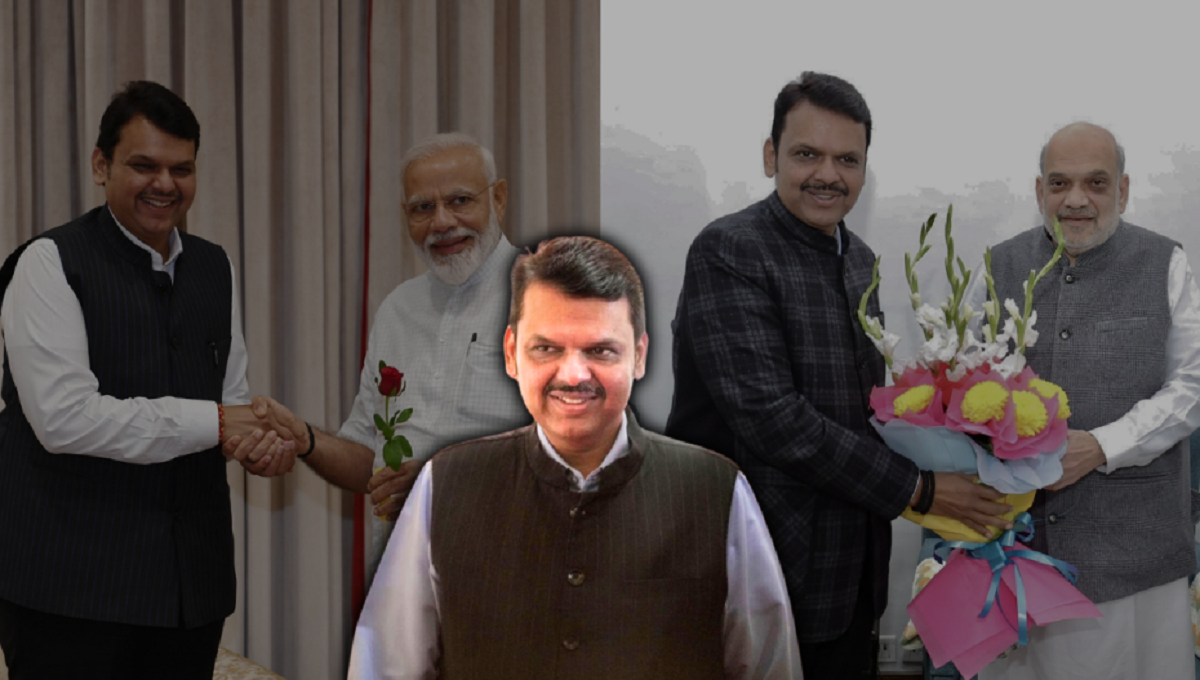Mumbai: A seasoned Bharatiya Janata Party stalwart, Devendra Fadnavis is ready to reclaim Maharashtra’s top political position, set to be sworn in as chief minister on December 5th after unanimous selection by the party’s legislative wing.
His remarkable political journey represents a compelling narrative of strategic ascendance and persistent political dedication. Rising from grassroots political activism to state leadership, Fadnavis embodies the transformative potential of contemporary Indian political landscapes.
आखिर कैसे बने फडणवीस मुख्यमंत्री पद के दावेदार जानिए
Key Insights into Devendra Fadnavis’s Political Profile –
1. Professional Background and Political Roots
Fadnavis emerges as a multifaceted political leader, combining legal expertise with deep organizational connections. A committed ideological worker with RSS roots, he established himself as a formidable political figure in Maharashtra. His six consecutive electoral victories from the Nagpur South West constituency underscore his robust political acumen and strong grassroots connection, demonstrating an exceptional ability to consistently win voter confidence.
2. Early Ideological Foundations
Even in his youth, Fadnavis displayed remarkable ideological clarity and independence. Choosing to transfer from Indira Convent due to ideological differences—specifically rejecting an institution named after a prime minister who had imprisoned his father—revealed early signs of his independent political thinking.
Devendra Fadnavis will be the next CM of Maharashtra, Eknath Shinde or Ajit Pawar to be his Deputy
3. Rapid Political Ascendancy
Fadnavis’s political trajectory is characterized by remarkable early achievements. Becoming Nagpur’s youngest mayor at 27 and subsequently emerging as Maharashtra’s second Brahmin chief minister, he navigated complex political landscapes with exceptional strategic insight. His campaign methodologies demonstrated sophisticated political engineering, effectively utilizing national leadership narratives and mobilizing voters through powerful cultural and ideological messaging.
4. Leadership and Governance Approach
Distinguished by an approachable leadership style, Fadnavis earned widespread institutional and public respect. His initial chief ministerial tenure in 2014 was marked by addressing complex socio-political challenges. Key interventions included tackling the intricate Maratha reservation issue, launching transformative infrastructure projects like the Mumbai-Nagpur Samruddhi Mahamarg, and initiating comprehensive police reforms that signaled administrative modernization.
5. Institutional Reforms and Development Focus
Fadnavis established himself as a leader committed to institutional transparency and developmental progress. His notable exposure of the irrigation scam demonstrated an unwavering commitment to combating systemic corruption. Under his leadership, Maharashtra experienced significant infrastructural transformation. Innovative initiatives like ‘Jal Yukt Shiwar’ revolutionized water management strategies, showcasing a pragmatic approach to addressing critical developmental challenges.



